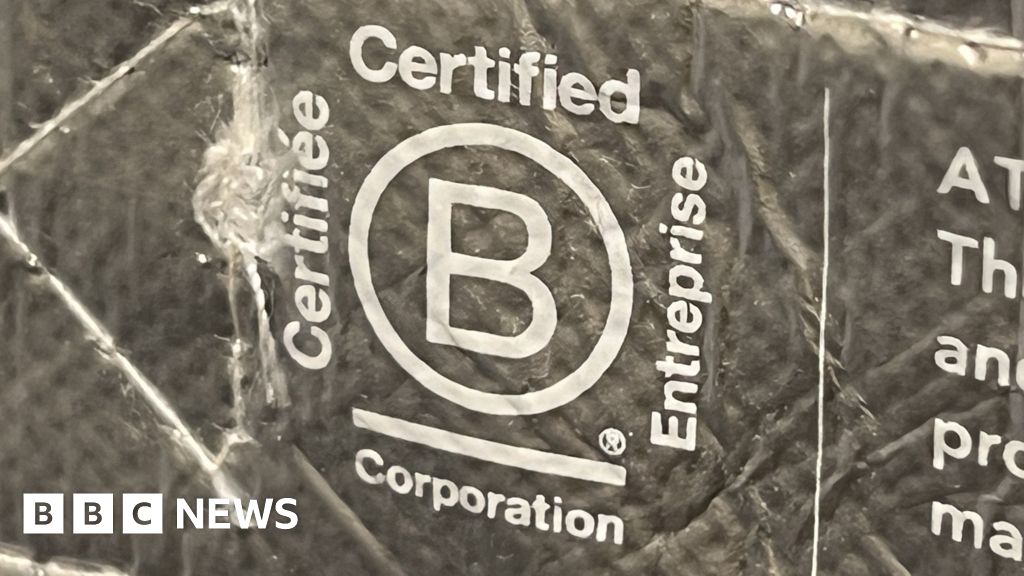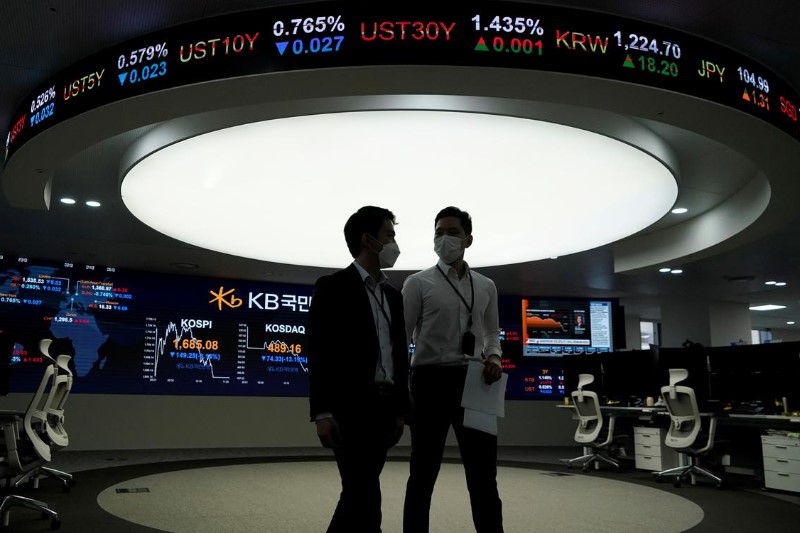The Controversy Surrounding B Corp's Certification Process

Introduction
In recent years, the global environmental movement has gained significant momentum, with individuals and businesses alike striving to make more sustainable and eco-friendly choices. One of the most notable initiatives in this movement is the B Corp scheme, which certifies companies that meet certain social and environmental performance standards. However, this scheme has recently come under fire from US business Dr Bronner's for allowing in too many multinational corporations, sparking accusations of greenwashing.
Background
The B Corp scheme was founded in 2006 and has since certified over 3,500 companies as socially and environmentally responsible, including well-known brands like Patagonia and Ben & Jerry's. These companies are required to meet rigorous standards, including providing fair wages and benefits to employees, minimizing their environmental impact, and giving back to their communities. The B Corp logo has become a symbol of trust for consumers looking to support ethical and sustainable businesses.
Current Scenario
However, the recent criticism from Dr Bronner's has raised concerns about the integrity of the B Corp scheme. Dr Bronner's, a family-owned soap company known for its commitment to sustainability, has accused the B Corp of allowing in too many multinational corporations that do not meet the same standards as smaller, independent businesses. These accusations have sparked a debate about the true intentions of these larger corporations, with some questioning if they are truly committed to sustainability or just using the B Corp logo as a marketing tool.
For its part, the B Corp scheme has defended its certification process, stating that they have strict criteria and rigorous assessments for all companies, regardless of size. They also emphasize the power of larger corporations in driving positive change and believe that their involvement in the B Corp community can have a significant impact on the global environmental movement.
Looking Ahead
While the accusations of greenwashing may have raised some concerns about the B Corp scheme, it also highlights the importance of transparency and accountability in the global environmental movement. As consumers become more conscious of their purchasing decisions and the impact of their choices, it is crucial for businesses to uphold the values and standards they claim to represent. The B Corp scheme can play a vital role in promoting and enforcing these values, but it is also essential for consumers to do their own research and hold companies accountable.
In the end, the B Corp scheme may need to reassess its certification process and ensure that all companies, regardless of size, are truly dedicated to sustainability and ethical practices. With the collective effort of businesses and consumers, we can continue to push for a more environmentally friendly and socially responsible future.
About the Organizations Mentioned
B Corp
B Corp is a certification for for-profit companies that meet rigorous standards of social and environmental performance, transparency, and accountability, aiming to use business as a force for good. Established in 2006 by the nonprofit network B Lab, the B Corp movement guides companies toward a stakeholder-driven model that balances profit with purpose, creating value for workers, communities, and the environment[1][2][4]. To become a B Corp, companies undergo the B Impact Assessment, a comprehensive evaluation measuring their impact on workers, community, environment, customers, and governance. Only companies that meet high thresholds of verified performance earn certification, which also requires legal commitment to stakeholder governance and public transparency of their impact[2][4][7]. This makes B Corp certification a credible, third-party validation that breaks through greenwashing and promotes genuine sustainability and social responsibility[4]. The movement has grown to include over 9,000 certified companies across more than 100 countries, representing a diverse range of industries. Notable B Corps include Patagonia, Kickstarter, Coursera, Warby Parker, and Allbirds[1][3][5]. These companies demonstrate a commitment to racial and climate justice, dismantling unjust systems while showing how for-profit companies can drive positive societal change[1]. B Corps tend to have a more equitable pay ratio (6:1 highest to lowest wage) compared to the global average (144:1) and are more likely to choose suppliers based on social and environmental criteria[2]. They also often outperform other emerging brands in competitive growth while maintaining a strong mission focus[2]. The B Corp movement is influential in business and technology sectors, appealing to employees and consumers who prioritize ethical and sustainable business practices. With increasing demand for corporate responsibility, B Corp certification represents a meaningful way for companies to demonstrate their dedication to impact alongside profit[3][4].
Patagonia
**Patagonia, Inc.** is a pioneering American company specializing in outdoor recreation clothing, equipment, and food products, with a strong foundation in environmental activism and sustainability. Founded in 1973 by rock climber and environmentalist Yvon Chouinard in Ventura, California, Patagonia began as a small business selling climbing gear before expanding into apparel and outdoor accessories[2][3][4]. Chouinard’s journey started in 1957 with Chouinard Equipment, focusing on climbing tools. By 1973, the company launched Patagonia as a distinct brand for outdoor clothing inspired by a transformative trip to the Patagonia region in South America. This name symbolized the brand’s adventurous spirit and connection to nature[3][5][8]. Over time, Patagonia broadened its product range beyond climbing to include gear for surfing, fly fishing, hiking, and camping, reflecting a holistic approach to outdoor lifestyles[2][4]. A hallmark of Patagonia is its deep commitment to sustainability. Early on, the company switched entirely to organic cotton to reduce environmental harm from conventional cotton farming. In 1985, it pledged 10% of profits to environmental causes, later committing 1% of sales to conservation organizations through programs like “1% for the Planet”[3][4][6]. Patagonia’s Worn Wear initiative, launched in 2017, promotes a circular economy by encouraging customers to return used products for repair, resale, or recycling, minimizing waste and extending product life cycles[4][6]. In 2012, Patagonia expanded into food with Patagonia Provisions, offering sustainably sourced packaged goods aligned with its environmental ethos[2]. The company also became a certified B Corporation in 2012, recognized for its high standards in social and environmental performance[3]. In a landmark move in 2022, Yvon Chouinard transferred ownership of Patagonia to tw
Ben & Jerry's
**Ben & Jerry's: A Legacy of Joy and Justice** Ben & Jerry's is an iconic ice cream company founded in 1978 by childhood friends Ben Cohen and Jerry Greenfield in Burlington, Vermont. Initially operating from a renovated gas station, the duo's innovative approach to ice cream, emphasizing natural ingredients and quirky flavors, quickly gained popularity. Early successes included the introduction of unique flavors like Cherry Garcia, named after the Grateful Dead guitarist, and the establishment of the Ben & Jerry's Foundation, which allocates 7.5% of the company's pre-tax profits to community projects[1][2]. **History and Achievements** Ben & Jerry's expanded rapidly, opening its first franchise in 1981 and going public in 1984[6]. The company's commitment to sustainability and social justice was revolutionary, setting a precedent by using Fairtrade-certified ingredients[3]. In 1989, Ben & Jerry's opened a factory in Waterbury, Vermont, which became a major tourist attraction[2]. The company's global expansion began in the 1990s, with operations in the UK by 1994[5]. In 2000, Ben & Jerry's was acquired by Unilever, allowing it to reach 33 countries worldwide[3][5]. **Current Status and Notable Aspects** Today, Ben & Jerry's is known for its three-part mission: **Product Mission** (quality natural ingredients), **Economic Mission** (sustainable growth), and **Social Mission** (community support)[3]. The company continues to innovate, with recent initiatives focusing on environmental sustainability and social activism. Ben & Jerry's remains a leader in the ice cream industry, celebrated for its unique flavors and commitment to social responsibility[5]. Notable aspects include its annual Free Cone Day, which began in 1979 as a thank-you to loyal customers[5]. The brand's quirky marketing strategies, such as the Cowmobile, have also contributed to









